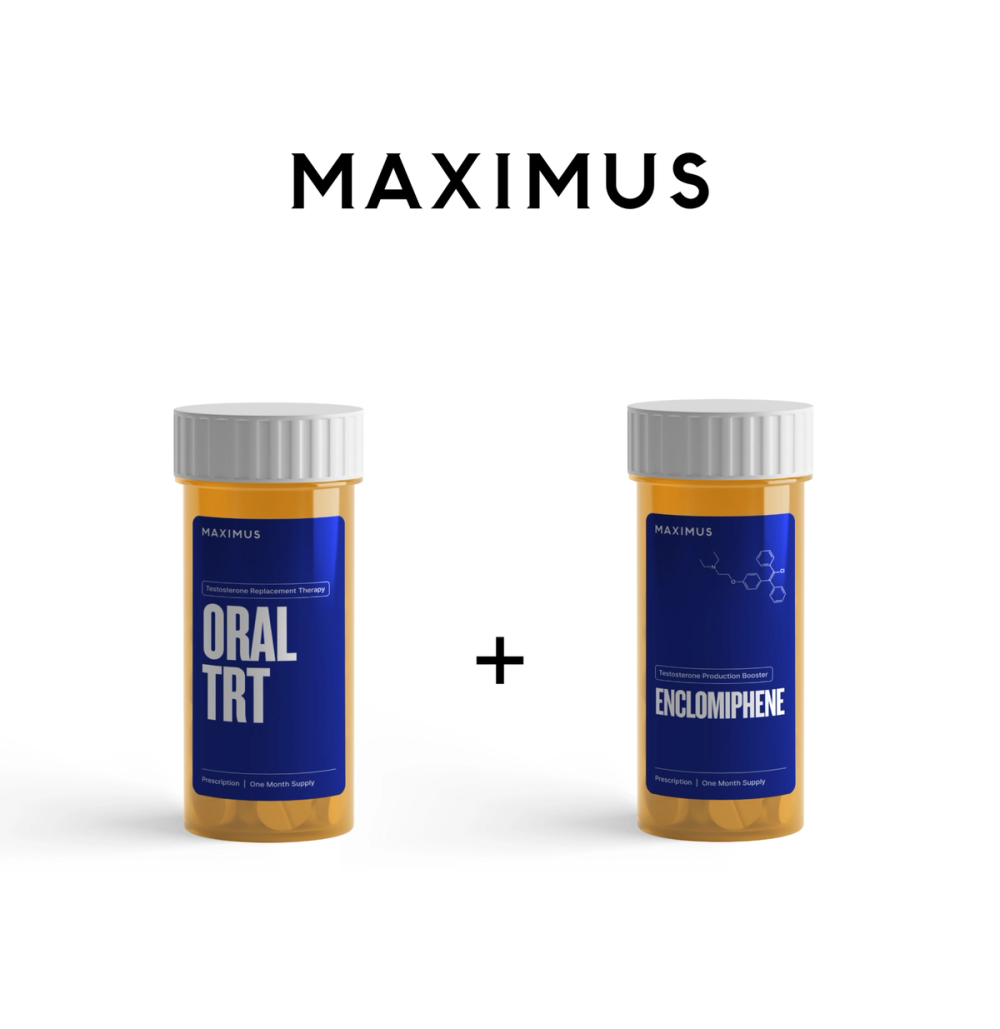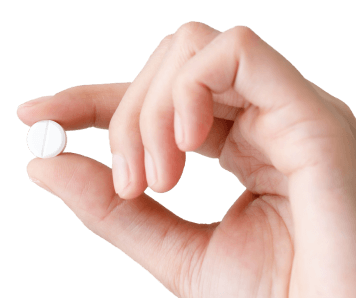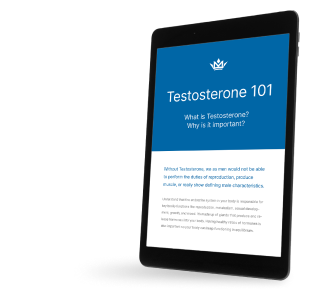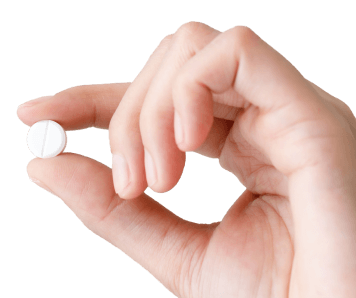Introduction
More than 1 in 3 men in the U.S. are overweight and 6.9% of men have severe obesity, putting millions at risk of developing several diseases and health conditions including diabetes, heart disease, and some cancers. Liraglutide, commonly sold under the brand names Saxenda® or Victoza®, is an injectable prescription medication that suppresses the appetite and promotes fullness to aid weight loss.
Read on to find out how liraglutide works, what side effects you should know about, and how the medication compares to other weight loss drugs like semaglutide and tirzepatide.
Key takeaways:
- Liraglutide is an injectable prescription medication that can aid weight loss by suppressing the appetite and helping you feel full longer.
- It belongs to a class of drugs known as GLP-1 agonists; these drugs mimic hormones that are released in response to food intake to induce satiety.
- With a similar safety profile and studies confirming its efficacy, liraglutide is an acceptable alternative to other GLP-1s like semaglutide and tirzepatide.
What is liraglutide?
Similar to drugs like semaglutide and tirzepatide, liraglutide is a type of drug known as a glucagon-like peptide-1 (GLP-1) receptor agonist. It mimics a hormone your body makes naturally in response to food intake to suppress your appetite and promote fullness, resulting in weight loss. Liraglutide is available by prescription only and is a daily injectable.
Approved by the FDA in 2010, liraglutide was originally intended for type 2 diabetes patients. In 2014, higher doses became available for the sole purpose of promoting weight loss. It is typically used by individuals with excess weight (BMI ≥27) who also have weight-related medical problems or obesity (BMI ≥30).
How does liraglutide work for weight loss?
GLP-1 is a hormone your body produces naturally when you eat. It is released by the brain and gut to create the sensation of feeling full by suppressing the appetite and delaying gastric emptying. Liraglutide mimics GLP-1 to create the same sensation, leading you to consume fewer calories and feel fuller longer.
Liraglutide mechanism of action:
- Binds to and activates GLP-1 receptors in the peripheral and central nervous system, pancreas, intestine, stomach, kidney, and heart
- Stimulates insulin secretion
- Reduces plasma glucose levels
- Delays gastric emptying
- Acts on the brain’s subcortical areas to produce satiety
Simply put, liraglutide works on receptors in your brain and your gut to suppress your appetite and help you eat less, resulting in weight loss. But it should be combined with diet and exercise for the best results.
Studies on liraglutide and weight loss
Numerous studies have proven that liraglutide is an effective treatment for weight management and sustained weight loss. Using this medication may also help reduce the risk of other health issues, such as cardiovascular disease.
In this 56-week study, patients treated with liraglutide lost an average of 8.4 kg of body weight, compared to just 2.8 kg in the placebo group. More than 63% patients lost at least 5% of their body weight, while 33% lost more than 10% of their body weight when using liraglutide in addition to a healthy diet and exercise. Overall, approximately 92% of the patients in the liraglutide group lost weight.
A 2017 critical review found similar findings across five randomized, placebo‐controlled trials of liraglutide for weight management. Liraglutide helped subjects lose 4 to 6 kg, with a greater proportion of patients achieving at least 5 and 10% weight loss compared with placebo. Researchers also noted that liraglutide had the “unique benefit” of improved glycemic control, helping subjects to maintain their weight loss.
Why is liraglutide considered an adjunct to diet and exercise, and not replacement? This 2021 study compared the results of three groups: one following an exercise program, one using liraglutide as a sole treatment, and a combination group. While all treatment groups experienced decreased body weight and body-fat percentage after one year, the combined strategy reduced body weight and body-fat percentage approximately twice as much as the single-treatment strategies did. The combined strategy also produced additional health benefits, such as improved glycated hemoglobin levels, insulin sensitivity, cardiorespiratory fitness, physical functioning, and emotional well-being.
How long should you stay on liraglutide?
In a study where subjects lost a mean total of 8 kg when using liraglutide, the results were generally maintained for one year. But this was dependent on the patients’ consistency in maintaining their healthy diet and exercise program and taking the medication. Weight regain was said to “usually” follow discontinuation of treatment. Long-term effects of using liraglutide included a reduced risk of cardiovascular disease, diabetes, and nonalcoholic fatty liver disease.
The recommended liraglutide dose for weight loss is 3 mg. Patients typically start with a 0.6 mg per day for 1 week, gradually increasing by 0.6 each week until 3 mg is reached.
Liraglutide vs semaglutide
Liraglutide works similarly to semaglutide, another GLP-1 agonist commonly used for weight loss. A crucial difference between liraglutide and semaglutide is that liraglutide has a drastically shorter half-life of 13 to 15 hours. Semaglutide’s half-life is 165 hours. This may contribute to semaglutide’s superior weight loss effects.
In a 2022 study comparing once-weekly semaglutide injections with once-daily liraglutide injections, a mean weight change of -15.8% occurred with semaglutide vs. -6.4% with liraglutide. Subjects had “significantly greater odds” of achieving 10% or more, 15% or more, and 20% or more weight loss with semaglutide vs. liraglutide. Though GI upset was reported by more semaglutide users (84.1% compared to 82.7% with liraglutide), more patients decided to discontinue treatment with liraglutide (27.6%) compared to semaglutide (13.5%).
This 2022 Chinese study had similar findings; semaglutide resulted in more weight loss, but also caused more side effects (not clinically significant), including hypoglycemia. However, more serious adverse events were reported with liraglutide, though these events were not specified.
Liraglutide vs tirzepatide
Another buzzy GLP-1 agonist is tirzepatide, which may be even more effective than semaglutide and liraglutide. And like semaglutide, tirzepatide also has a longer half-life than liraglutide at 5 days.
In a 2023 meta-analysis comparing all three drugs, weekly tirzepatide treatment resulted in more weight loss than weekly semaglutide, daily semaglutide, and daily liraglutide. Though tirzepatide and weekly semaglutide were said to demonstrate “comparable results,” tirzepatide had significantly higher odds of achieving ≥5%-20% weight loss compared with liraglutide. While all three GLP-1 agonists resulted in significant weight reductions, tirzepatide was associated with better efficacy outcomes with a comparable safety profile.
Liraglutide side effects
Some research indicates that, compared to other GLP-1 agonists, liraglutide is discontinued more often due to adverse reactions among overweight or obese adults. The most common side effects are gastrointestinal symptoms and increased heart rate. Liraglutide also increases the risk of developing certain health conditions, including acute pancreatitis and gallbladder or biliary disease.
Liraglutide may also interact with other medications, especially other GLP-1 agonists. If you are already taking other medications or have pre-existing health conditions, you should always consult your doctor before taking this medication.
The bottom line: When combined with diet and exercise, liraglutide is an effective weight loss treatment for long-term use.
GLP-1s are increasing in popularity when it comes to aiding weight loss. Liraglutide is a suitable alternative to popular drugs like semaglutide and tirzepatide and is generally safe for long-term use. If you want to buy liraglutide online, you will need to consult a telehealth physician to ensure you are a good candidate. While liraglutide isn’t a quick fix, when combined with a healthy diet and exercise, it can help you achieve your fitness goals faster.
Disclaimer: The contents of this article, including, but not limited to, text, graphics, images, and other information, is for information purposes only and does not constitute medical advice. The information contained herein is not a substitute for and should never be relied upon for professional medical advice. The content is not meant to be complete or exhaustive or to be applicable to any specific individual's medical condition. You should consult a licensed healthcare professional before starting any health protocol and seek the advice of your physician or other medical professional if you have questions or concerns about a medical condition. Always talk to your doctor about the risks and benefits of any treatment. Never disregard or delay seeking professional medical advice or treatment because of something you have read on this site. Maximus does not recommend, endorse, or make any representation about the efficacy, appropriateness, or suitability of any specific test, products, procedures, treatments, services, opinions, healthcare providers or other information contained herein. Maximus is not responsible for, nor will they bear any liability for, the content provided herein or any actions or outcomes resulting from or related to its use.








